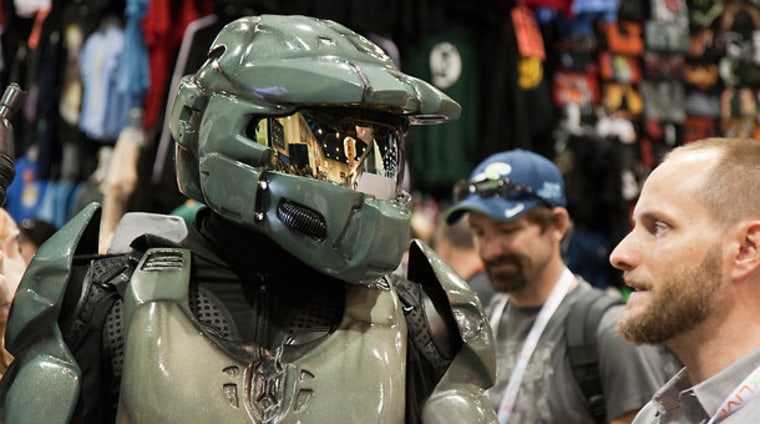Nidhi Subbaraman
Fast Company
Leave it to a psychologist at the University of Essex to discover that the secret sauce in irresistible video games is the characters' personalities — especially those that leave just enough creative space for players to pour themselves into.
"Games offer a window. They offer you that window to be your ideal self," Andrew Przybylski, a Halo and Angry Birds player himself, says. Previously, Przybylski has shown that players prefer challenges in games to violence. His new study in the journal Psychological Science, explains that the further away a person's real life is from the "ideal" character they play in a game--the better fit they can find in the hero's skin--the more enjoyable they find a game. It's the role-playing of Dungeons & Dragons multiplied by the power of powerful processors and pixels.
The explosive popularity of games such as "Halo"and "World of Warcraft," where gamers get a chance to play characters in alternate gaming worlds and interact with other gamer characters, has a lot to do with the characters the game offers.
Games let gamers live out their ideals in different ways. On the one hand, Przybylski says, games such as Electronic Arts's "The Sims" offer up their characters as blank slates, and give gamers a chance to handcraft an ideal virtual life. And at the other end of the spectrum, games like "Halo Reach" have characters with detailed life histories and personality traits.
"That's where game makers succeed at offering those custom experiences that are in line with (gamers') ideals," says Przybylski. You may not need to feel like an assassin, but you could want to feel more powerful. Or, you can feel like a more decisive person when you play "Tetris," Przybylski says.
"The characters that pack the most punch, at least a broad base of players are going to identify with," says Christopher Ferguson, an associate professor at Texas A&M International University. "We're all kind of raised on these fairy tales, boys saving the world from doom. Games that give players the ability to stand out, at least in their own minds, are likely to be the most successful."
That's a trend game developers are already tapping into. "We have a generation that wants to be 'that person,'" says Cliff Bleszinski, design director at Epic Games, the creators of the "Gears ofWar" series, and games these days excel at letting gamers inhabit another persona. "If they fire up a multiplayer of the game, they can find a skin that they can slip into."
Frank O'Connor, franchise development director at 343 Industries, who's nurtured the characters in the "Halo" franchise into shape, says, "There's a real difference between watching "Indiana Jones" and being Indiana Jones," says O'Connor. And he should know. Master Chief, the masked star of the "Halo" series, is a smash hit, and one of the most popular characters in gaming history. Why? Because he comes with shades of anonymity, allowing gamers to own the Chief's character, and personalize their experience of the game.
And "Halo" seems to fill the "ideal" of different kinds of gamers in different ways, O'Connor says. One "Halo" player he knows of is a young paraplegic boy with hearing issues, and the "Halo" world lets him live out of his physical constraints in this virtual environment. Military men are also part of the franchise's massive following. O'Connor knows of a gamer in Afghanistan, who comes back home to play "Halo" with his buddies after a day of real combat in the field. "There was no risk in the game, and he could enjoy it with his friends and he found it decompressing," O'Connor says.
Then there's the social aspect of it all, which reaches beyond just the character, to the company you have in the game. That's another part of Przybylski's study. "With "(Halo) Reach," if they want to be more extroverted than they want to be in their day-to-day lives, they can choose the option to play with players that are more chatty."
O'Connor says that's part of why people keep coming back to the game, too. People enjoy playing with friends, and like connecting with strangers. A Steelers fan may meet another Steelers fan, for example, and feel a connection to cherish even though the game is inherently competitive.
Bleszinski, of "Gears of War," was recently at Comic Con, and for the umpteenth time was surprised by the level of effort and detail that went into costumes at the entertainment and gaming conference. "That's the ultimate example of people slipping into the real world in their virtual skins," he said.
Related links:
